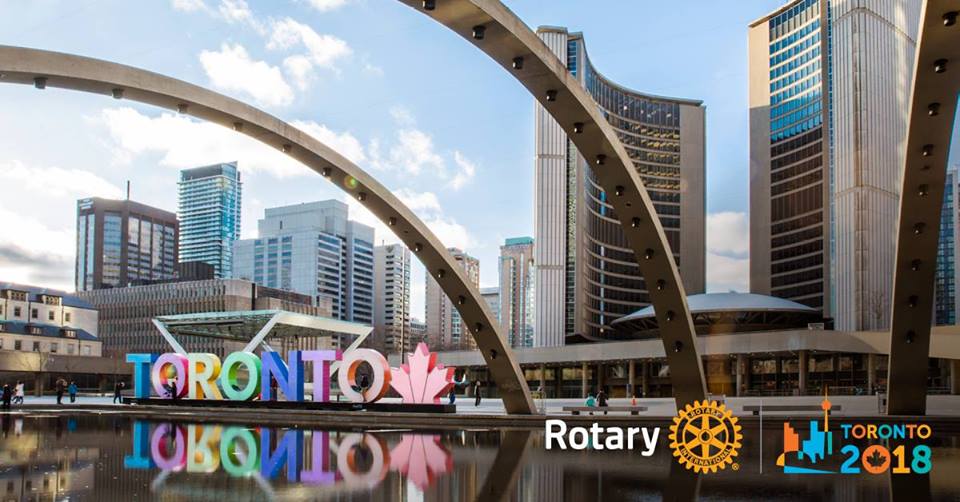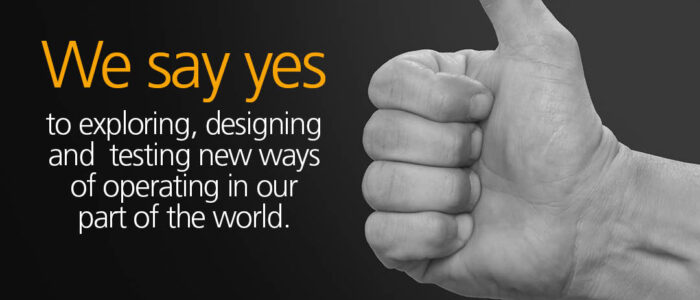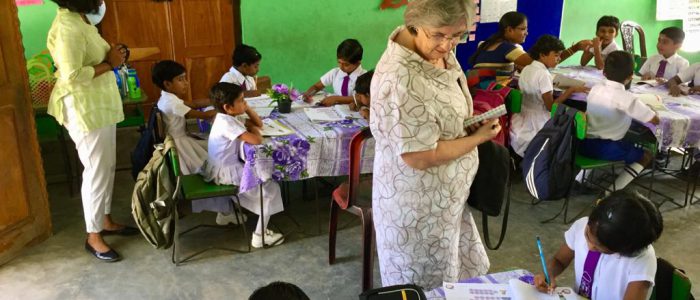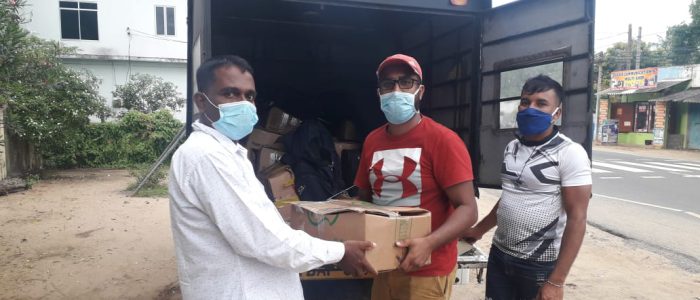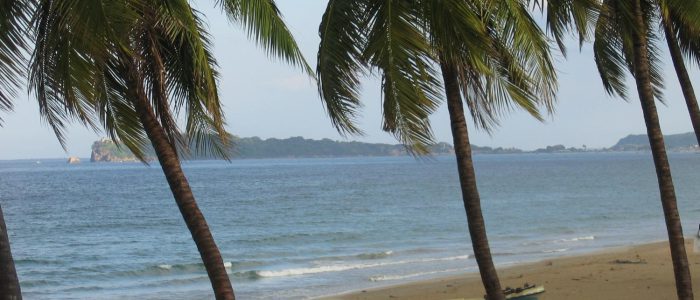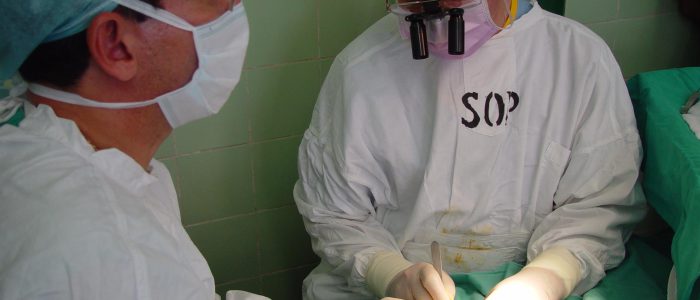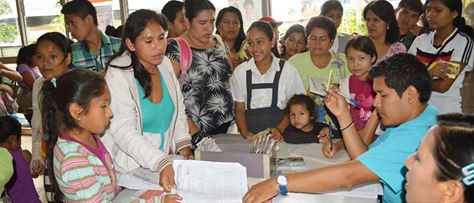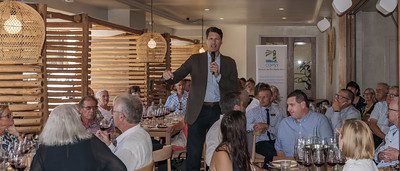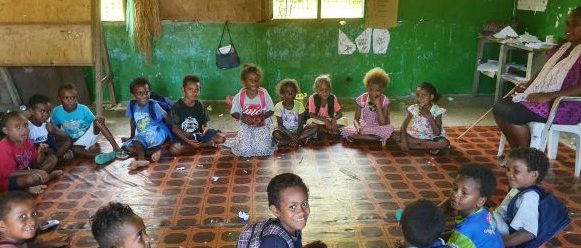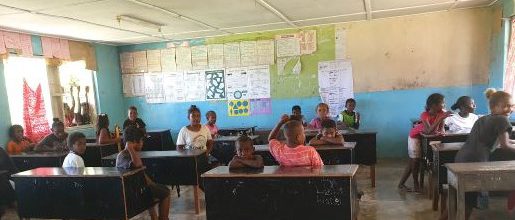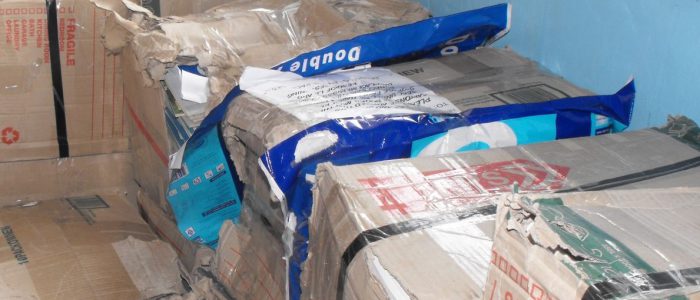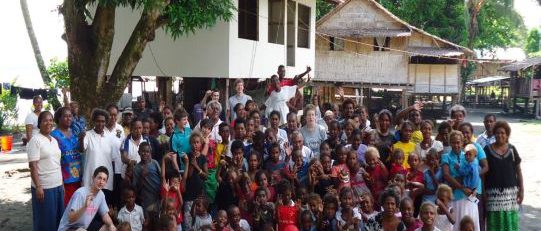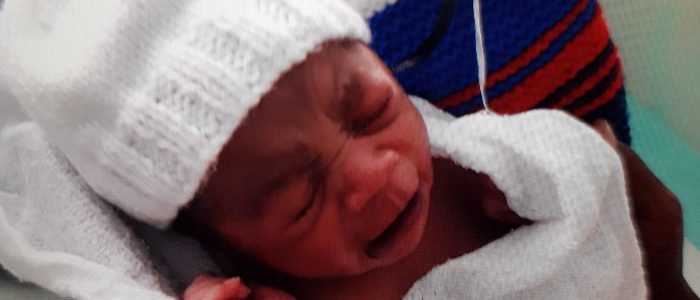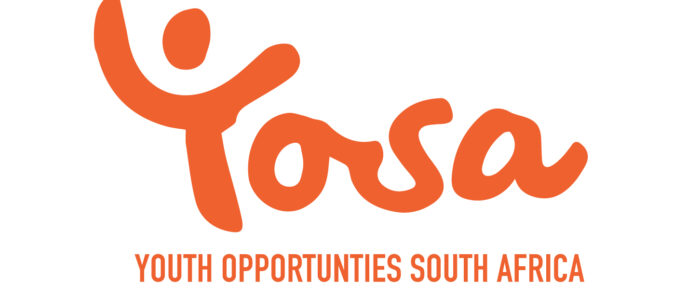Hi All,
Our next meeting will be held Tuesday, 12th June at 7.30pm EST.
Hopefully we will have an interesting guest speaker and we may also be inducting a new member. It promises to be a great meeting.
Carolyn and I are continuing to enjoy our travels in Queensland after a very enjoyable five days at Monto with the Highway Wanderers (picture below) most of whom live and travel in their motor homes all year round. Some very interesting people.
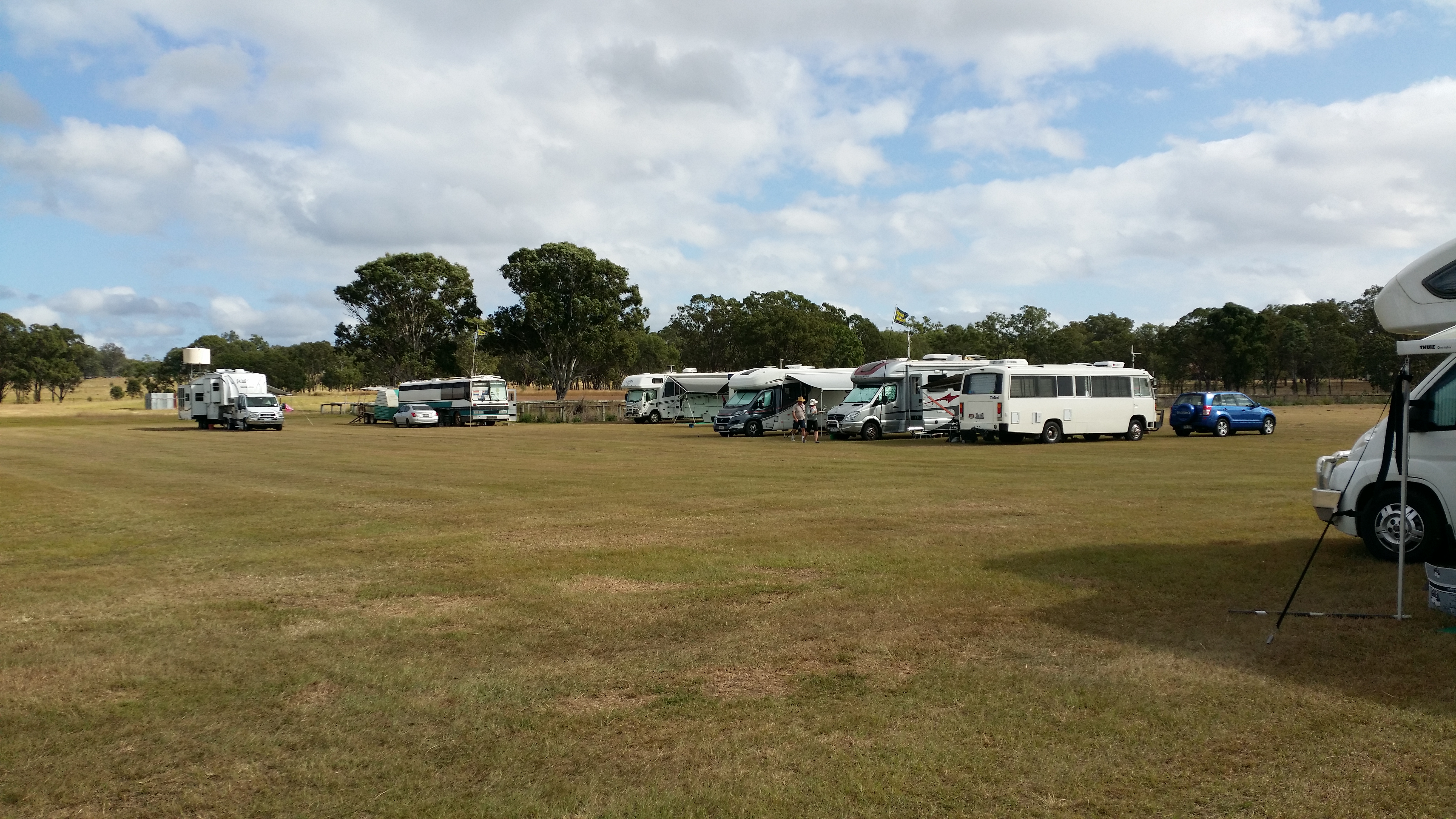
We are currently staying on a farm stay property near Roma and tomorrow we travel to stay for four nights at Canarvon Gorge. Apparently some spectacular walks and scenery. It is a little cold at night but should be good for walking.
This is a great story by a new member of Rotary.
Rotaractors: Find your road to Rotary

Rebecca Fry will be presenting a workshop on the Road to Rotary at the Rotaract preconvention.
By Rebecca Fry, a member of the Rotary E-Club of Silicon Valley
In 2005, I made a seemingly small decision to apply for “science camp.” It happened to be the Rotary-sponsored, National Youth Science Forum. Fast forward 13 years and I’ve been heavily involved in the Rotary Youth Leadership Awards (RYLA), Rotaract and most recently I took the next exciting leap and joined the Rotary E-Club of Silicon Valley. Selecting the best Rotary club to join was an 18-month journey.
As a past-president of Sydney City Rotaract, I had existing relationships with a couple of local Rotary clubs in the city, however it was challenging for me to attend their weekly meetings based on meeting location, time and in some circumstances, cost.
A Rotaract friend invited me to attend one of their e-club meetings back in early 2017. I’ll admit I was a little hesitant at first as I love the personal interaction, friendships, and networking that stem from being involved in my local Rotaract club and I was unsure if an e-club would be able to provide me with the same personal connection. Soon I came to appreciate the meeting format, online initiatives, and international network. But there were still some questions I needed to answer – Why was I joining Rotary? and What did I want to both give and get out of my Rotary membership? These are two critical questions that I anticipate many of us don’t answer, yet are essential for us to find the right club.
More specific questions that can help us understand our personal needs include:
- Have you moved to a new city and are looking to make friends?
- Do you have a preference for a morning, lunchtime, or evening Rotary meeting?
- Are you seeking practical volunteering opportunities?
- What skills would you like to bring to a Rotary club?
Upon reflecting on my internal motivations, I realized that with the amount of volunteer work I was doing for RYLA, Rotaract, and Rotary in the professional development space, I needed a club that could flexibly fit around my schedule. I also came to appreciate that I’d love to work overseas in the future, so a remote club with an international network was a big tick. I also found I resonated with like-minded members at Rotary E-Club of Silicon Valley, who were so welcoming and set up Facetime and Skype chats so we could connect despite being thousands of miles apart!
At the upcoming Rotaract Preconvention, 22-23 June in Toronto, Ontario, Canada, Florian Wackermann and I will be presenting a workshop on the Road to Rotary for Rotaractors. Our goal is to help Rotaractors to understand the variety of opportunities to remain in the Rotary family and more specifically help you find your place in the Rotary world, where you can continue to create positive change in the world, develop your leadership skills and make long lasting friendships.
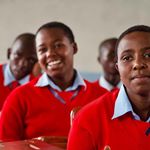
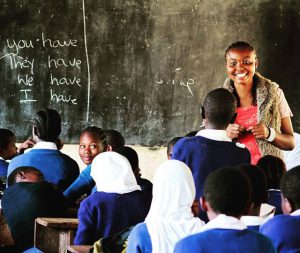
Raising funds to purchase a school bus for our RAWCS Project 5-2011-12, Indigenous Education Foundation of Tanzania – Orkeeswa Secondary School (WR-006-2011)
The raffle is being organised by our partner sponsoring Club the Rotary Club of Geraldton, D9455 for the project and I encourage your support for a really worthwhile cause.
Rotary Raffle $6000 Flight Centre Travel Voucher
Contact – PP Dianne Gilleland
PO Box 855, Geraldton, Western Australia 6531
This project aims to provide high quality secondary education to impoverished children by funding computer laboratory equipment, school bus, science building equipment and a sports pitch, Orkeeswa Secondary School, Tanzania. More info – 2017 IEFT Mid Year Report
Project Manager Rtn Sharon Daishe (M) 0488 628 555 Email: s.daishe@gmail.com
Deputy Manager PP Dianne Gilleland (M) 0419 854 413 Email: dennis@wn.com.au
Website – http://www.ieftz.org
Sponsored by the Rotary Club of Geraldton, District 9455 and Rotary E-Club of D9700-Serving Humanity, District 9700
Hi All,

Thanks to all who attend our meeting last Wednesday.
A special welcome to prospective member Tebao Awerika, from the Pacific nation of Kiribati.
In many ways it was special meeting that really gave our Club a purpose and a new found enthusiasm to expand our Club’s membership.
Thanks to Guest Speaker Ruth Barber, a member of our Club who spoke about the work she does in her community in Wagga Wagga, NSW.
Ruth’s history and involvement in Rotary and Community service is listed below:
- Attended RYLA (Rotary Youth Leadership Awards) in 1970
- Chartered a Griffith Rotaract (Rotary Club for young adults) in 1971. Started with 30 member grew to 70 members
- Ruth’s husband Bruce joined Rotary in 1980. Bruce was D9700 District Governor 2004-5. His father D9700 District Governor 1973-74.
- Chartered a breakfast club – Griffith Avanti
- Chairman of D9700 District Conference in 2009 – Griffith
- Moved to Wagga Wagga, joined Wagga Wagga Rotary Club
- Worked with Dr Alok Sharma on RAWCS project “Darkness to Light”. (Travelling to India to assist Dr Sharma with eye surgery)
- Established Darkness to Light – Riverina.
- Working with Vision impaired in Wagga Wagga
- Oz Harvest in Wagga Wagga, Ruth and Bruce both involved. (collect food from Woolworths, Coles etc and distributes to the needy in Wagga Wagga)
- Assists at Ronald McDonald House. (stays overnight assisting patients and families at Wagga Base Hospital)
- Assists at Language Café at Wagga Regional Library (working with refugees with language and other needs)
- Assist at Kurrajong Waratah (organisation in Wagga Wagga assisting those with special needs) Participates in Quality Assurance Interviews to assess needs are being delivered to the clients.
- Assists with “Girls at the Centre”. This program, “Girls at the Centre” was establish by The Smith Family to assist the Indigenous students to develop good behaviour and good attendance at school. The Centre is based at Mt Austin High School, Wagga Wagga. Mt Austin has a high indigenous population. Ruth assists with breakfast on Wednesday to ensure one good breakfast a week. It is a privilege to attend. After school activities are held to keep the girls engaged and helps them stay at school. Smith Family provide “Life Coaches” who Ruth comments are excellent role models. After 12 months of good behaviour and good attendance the girls are rewarded with excursions and special functions. One of the attendees of this program is now School Captain and has excelled in sport and has great ambitions for further progress.
Thank you Ruth for a great presentation. We could all follow her example and make our own communities a better place for all.
Meet 6 champions of peace
Honorees will be recognized at Rotary Day at the United Nations in November
The honorees, which were announced on International Peace Day, are all involved in projects that address underlying causes of conflict, including poverty, inequality, ethnic tension, lack of access to education, or unequal distribution of resources.
The six Champions of Peace are:
-
Jean Best, a member of the Rotary Club of Kirkcudbright, Scotland —Best leads a peace project that is designed to teach teenagers conflict resolution skills they can use to create peace-related service projects in their schools and communities. Best worked with peace fellows at the University of Bradford to create the curriculum. She has also worked with local Rotary members and peace fellows to set up peace hubs in Australia, England, Mexico, Scotland, and the U.S.
Best became a Paul Harris Fellow for contribution to developing peace strategies.
 Ann Frisch, a member of the Rotary Club of White Bear Lake, Minnesota, USA — Frisch believes unarmed civilians can protect people in violent conflicts. She collaborated with Rotary members in Thailand to establish the Southern Thailand Peace Process training program in 2015 in Bankok, Hat Yai, and Pattani in southern Thailand. The group brought together electrical and irrigation authorities, Red Cross staff, a Buddhist monk, and a Catholic nun to this border region to train civilians to build so-called safe zones. These are areas in which families, teachers, and local officials do not have to confront military forces every day.
Ann Frisch, a member of the Rotary Club of White Bear Lake, Minnesota, USA — Frisch believes unarmed civilians can protect people in violent conflicts. She collaborated with Rotary members in Thailand to establish the Southern Thailand Peace Process training program in 2015 in Bankok, Hat Yai, and Pattani in southern Thailand. The group brought together electrical and irrigation authorities, Red Cross staff, a Buddhist monk, and a Catholic nun to this border region to train civilians to build so-called safe zones. These are areas in which families, teachers, and local officials do not have to confront military forces every day. Frisch, a UN delegate to Geneva, co-wrote the first manual on unarmed civilian protection, which was endorsed by the UN. Her training in a civilian-based peace process is administered by the United Nations Institute for Training and Research, the department that trains all UN personnel.
Safina Rahman, a member of the Rotary Club of Dhaka Mahanagar, Bangladesh — Rahman is an important advocate for women’s rights in the workplace in Bangladesh. As a garment factory owner, she was the first to offer health insurance and maternity leave for her female employees. She worked with the Rotarian Action Group for Peace to organize the first international peace conference in Bangladesh. A policymaker for the Bangladesh Garment Manufacturers and Exporters Association, she champions workplace safety and workers’ rights and promotes girls’ education and women’s rights.
Rahman is chair of two schools that provide basic education, vocational training, conflict prevention, and health and hygiene classes.
-
 Alejandro Reyes Lozano, a member of the Rotary Club of Bogotá Capital, Colombia — Reyes Lozano, an attorney, was appointed by Colombian President Juan Manuel Santos to assist with negotiations and set terms and conditions to end the 50-year conflict with the Revolutionary Armed Forces of Colombia (FARC).
Alejandro Reyes Lozano, a member of the Rotary Club of Bogotá Capital, Colombia — Reyes Lozano, an attorney, was appointed by Colombian President Juan Manuel Santos to assist with negotiations and set terms and conditions to end the 50-year conflict with the Revolutionary Armed Forces of Colombia (FARC).Reyes Lozano’s Rotary Club, Bogotá Capital, worked with Mediators Beyond Borders International to train 27 women from six Latin American countries to develop skills in peacebuilding, conflict resolution, and mediation to deal with conflicts in their communities. The project also developed an international network of women peace builders.
-
 Kiran Singh Sirah, a graduate of the Rotary Peace Center at the University of North Carolina at Chapel Hill — Sirah is president of the International Storytelling Center in Tennessee, USA, which uses storytelling as a path to building peace. The organization seeks to inspire and empower people everywhere to tell their stories, listen to the stories of others, and use storytelling to create positive change.
Kiran Singh Sirah, a graduate of the Rotary Peace Center at the University of North Carolina at Chapel Hill — Sirah is president of the International Storytelling Center in Tennessee, USA, which uses storytelling as a path to building peace. The organization seeks to inspire and empower people everywhere to tell their stories, listen to the stories of others, and use storytelling to create positive change. Kiran, the son of Ugandan refugees, created “Telling Stories That Matter,” a free guide for educators, peace builders, students, volunteers, and business leaders. The resource is now used in 18 countries.
-
 Taylor (Stevenson) Cass Talbott, a graduate of the Rotary Peace Center at the International Christian University in Japan — Stevenson developed a global grant to improve sanitary conditions for waste collectors in Pune, India. Waste collectors together handle 20 tons of unwrapped sanitary waste every day. Stevenson collaborated with SWaCH, a waste-collector cooperative, to create the “Red Dot” campaign, which calls for people to wrap their sanitary waste in newspaper or bags and mark it with a red dot.
Taylor (Stevenson) Cass Talbott, a graduate of the Rotary Peace Center at the International Christian University in Japan — Stevenson developed a global grant to improve sanitary conditions for waste collectors in Pune, India. Waste collectors together handle 20 tons of unwrapped sanitary waste every day. Stevenson collaborated with SWaCH, a waste-collector cooperative, to create the “Red Dot” campaign, which calls for people to wrap their sanitary waste in newspaper or bags and mark it with a red dot.This helps waste collectors identify sanitary waste and handle it accordingly. Stevenson developed all the educational imaging for the campaign. She also secured in-kind offerings of support, including free training space and campaign printing. She is also a Global Peace Index ambassador.
Hi All,
We have arrived in Cape Town after a fabulous 3 weeks touring eastern South Africa, Swaziland and Lesotho. A beautiful land of spectacular scenery and friendly people from both wealthy and poor means. We have had poor Wifi for the later half of our trip so I have been unable to post regularly. Hope that the meetings chaired by Marilyn have been going well.
Yesterday we toured Khayelitsha, an informal township near Cape Town Airport that houses 1.5 million residents in very poor housing. We were guided by a local who explained that the township was established during the apartheid era but since that era has grow much larger due to poor subsistance farmers moving here to try and find employment and make money to improve their families life. He explained that living conditions have improved marginally but communal water points are often far away and portable toilets have to be carried up to 1 kilometer or more to be emptied.
People in employment are able to pay for improved housing in these townships and some actually choose to build new homes if they are earning enough. There are some postive signs but the government is struggling to afford to supply the infrastructure required to improve the situation. Their biggest problem is that new subsistence farmers continue to move into the towns looking for wealth.
A huge problem continues to exist with HIV in these communities but good work is being done to educate and treat those who are HIV positive.
Today we drove past the Coolamon Clinic at Hout Bay that was built with funds provided by the fundraising efforts of DGE John Glassford’s trek to the summit of Mt. Kilimanjaro, the Rotary Clubs of Coolamon, Hout Bay, D9700 and a matching grant from the Rotary Foundation. It makes me proud to be a Rotarian when you see our work in action.
Hi All,
Our Wifi connections have been very limited this past few days with our visit to Kruger National Park, Imofolozi Game Reserve and the St. Lucia Estuary, iSimangaliso Wetland Park.
I am having trouble uloading photos for some unknown reason so sorry cannot show images this week.
We have been very fortunate to have seem multiple close encounters with all the big 5 and more. We have seem family groups of elephants, single lions and a group of three male lions right next to the road, at least 5 rhino’s in mating pairs, buffalo in singles and groups, hippopotami in family groups and a single leopard resting in a tree about 150 metres off the road.
The highlight for me was a walk in Kruger with just Carolyn and two rangers both armed with rifles. We saw a number of animals including a family of elphants about 100 metres from us, but we will never forget meeting up with a lone male buffalo who was drinking in a creek. He was just 10 metres in front on their own and can be very aggressive.
After our experiences here in Africa I have a greater understanding of the importance of DGE John Glassford’s initiative to form the Rotary Action Group for Endangered Species – https://www.endangeredrag.org/
Please have a look at their website and consider joining their worthwhile cause.
Hi All,
Please have a look at this new initiative by Rotary Clubs in Australia to eliminate Trachoma in Australia by 2020. I think we should support the program. Let us know how our Club should respond.
https://m.facebook.com/story.php?story_fbid=2302933639749043&id=184480288261066
We have completed a great week of skiing in Zermatt. It has been their best snow year for 18 years and the skiing was exceptional. The views are spectacular and a must for anyone interested in travelling. We are travelling in this comming week to Norfolk, England where I led a Rotary GSE team ten years ago. We are looking forward to renewing friendships formed back then. We will be attending the Rotary Club of Norwich St. Edmunds, D1080, next Tuesday hosted by PP Mark Little who hosted me on arrival ten years ago. Mark is an exceptional Rotarian. He established the Rotary Action Group – Rotarians Against Slavery after many years of submissions and dedicated lobbying. This action group is now being widely accepted by Rotarians around the world and great steps forward are being made in many countries as a result. I recommend looking at their website –
Hi All,
This week I have shared on Our Facebook site to he Rotary International President Elect Barry Rassin’s speach to the his DG’s last week.
Our Prexident Elect Marilyn Roberts has email all notifying the next Zoom meeting on Wednesday 31st January. Please contact her if you do not receive the email with the meeting link.
We leave today for Zermatt for another week of sking.
Greetings from La Tzoumaz, Switzerland
We arrived in Geneva and enjoyed a day exploring the old town and shopping area. On a tour of the International area we saw the various UN Headquarter buildings as well as many embassies and NGO headquarters such as Red Cross. A fascinating city but smaller than expected. It has a population of about 200,000 but each day another 200,000 travel from France to work in Geneva. The French border is only 10 klms from the centre of tbe city.
We traveled by train along the beautiful shores of Lake Leman commonly called Lake Geneva by tourists to Riddes. Then by mini-bus to La Tzoumaz.
La Tzoumaz is a ski resort in the Swiss Alps, in the canton of Valais. It is part of the “Four Valleys” ski area, which consists of various ski resorts, including Verbier, Nendaz, Veysonnaz, La Tzoumaz, and Thyon.

We are here for one week of skiing and the snow is good.
Our Club President Elect Marilyn Roberts will be emailing all memberswith details of a meeting to be held on Zoom at the end of the month. Please give her support while I am enjoying my holiday.
Hi All,
Welcome to 2018. This week i wish to share the unique stories of three Rotarians from different countries and Clubs. These are just some of the stories of members of Rotary International that make you proud to belong to this wonderful service organisation.
Be a millennial in Rotary
Dominick Bonny, Rotary Club of Wenatchee North, Wash.
Rotary is weird. Rotarians are old, mostly. They sing songs and say the Pledge of Allegiance before meetings. They tell lame jokes.

But they also organize highway trash cleanups, blood drives, and literacy fairs. They raise money for students to study abroad, and they open their homes to foreign students studying here. They are fixated on eradicating polio. Yes, polio is still a thing.
I’m 32. I joined Rotary three years ago when Earl Tilly, a leader I respect in our community, invited me. At my first meeting, I didn’t see a lot of faces my age, but I found that I fit in well with the Rotary mindset of Service Above Self. I remember thinking, “Oh, wow. I’m home.” Earl has since become a mentor to me. He’s 83 and still plays tennis and bikes regularly. He was mayor of our town, then our state representative. I admire him and the way he has lived his life. I find that people in Rotary do a lot of good, but not for self-promotion. I really respect and want to emulate that.
I run a social media and marketing company. I manage web pages for our local newspaper, three school districts, and other organizations. Part of my job is to monitor comments from the public, which means I’m in a quagmire of social media trolls every day. People are just terrible to one another online. They say awful, malicious things. It’s a downer. For me, Rotary is a way to unplug from that. I think the path back to a more civil society is through our clubs. While social media is good for a lot of things, it’s not good for breaking down the walls we build between us. Rotary offers a neutral space where I can gather with other people, even those I may not see eye-to-eye with on every issue, and focus on what really matters – making the world a better place.
Being in Rotary hasn’t been a total honeymoon. I went through a period when I wondered if it was for me. After I joined, I took over running our social media and built a new website for our club. I also started promoting Rotary to my network, but it didn’t feel as though we were making any progress or any other young people were going to join. But I had made a commitment to show up, so I stuck with it. To volunteer for stuff. I’m glad I did. Our club is almost half younger people now. It has added a bit of urgency to our lunch meetings, since not everyone is retired anymore.
So what’s it like to be a millennial in Rotary? To most young people, Rotary is old-fashioned. For me, that’s what makes it cool. People in my peer group tend to isolate themselves. We are connected by technology, but not truly connected. Rotary is my antidote to that.
As told to Vanessa Glavinskas
Be the Justin Bieber of Korea
Julian Quintart, Rotary Youth Exchange, Korea, 2004-05
There was never any question that I would go on a Rotary Youth Exchange, because my whole family has been through that program. My mom went from Belgium to the United States in 1973, my older brother went to the States too, and my sister went to New Zealand. My parents always emphasized how important it is to travel and see the world from a new view.

When I told Rotary that I wanted to visit Korea, they were a little surprised. This was 2004, and for most Europeans, Korea was just the name of a country that you might find on some cheap gadget. But I had a classmate who was half Korean, and I got interested in the culture, the music, and this form of animation called manga. So I asked Rotary, and to my surprise they said yes, I could go. It was a bit like asking Santa Claus for a car. You never think it’s going to happen.
When I landed at the airport, there was a crowd of people jumping up and down with a big banner and a TV camera. I didn’t think it could be for me. I’m just some kid from Belgium. Then the cameraman came over to interview me. I told my friend back home, “Oh, I’m going to be a TV star here!” I was just joking, but later on this became true.
At that time, the only thing I knew how to say in Korean was, “Hello, I am a human. Hello, I am not a dog.” But I spent a lot of time talking to Koreans, who are very outgoing, and after six months I started to be fluent. A friend of mine was making a TV show about foreigners who travel the Korean countryside. He asked me to appear, because I was this young Belgian guy who could speak Korean. The show aired after I returned to Belgium, and it was a crazy success. There were hundreds of messages on the chat boards, and it was the No. 1 Google search. The producer called me and said, “You have to come back.”
I was just 18 and was supposed to go to university, but suddenly I had a chance to go back to a country I loved and be on TV. My parents were very supportive. They said, “Of course you have to do this. It’s the opportunity of a lifetime.”
I spent the next few years doing TV and movies in Korea. Then I learned how to be a DJ. I got a lot of offers to do TV again, but I always said no, because as a foreigner you always come off a bit like a clown. Then, a couple of years ago, I got a call about a show called Non-Summit, which looked at Korean life in a more serious way. It featured people from all over the world and discussed real issues, such as gay marriage or whether to allow a parent to move in with you. Each person discussed how an issue was dealt with in their own country.
The show was lighthearted, but it was also a chance for Koreans to talk about social issues, and it was a huge success. At that point, I experienced a totally different level of fame. I could not walk in the streets without getting mobbed. People were knocking on my door and taking pictures all the time. I remember one time we had a big event in Seoul, and the whole street was filled with screaming people. I felt like I was in a zombie movie, where you’re trying to get from Point A to Point B without getting eaten. It was scary. Honestly, it was like what Justin Bieber experiences.
For about a year, I did six shows every week, along with interviews and other appearances. It was an amazing experience. These days, I do a lot more charity work. I just finished cycling around Korea, raising money for local hospitals. I feel I was given a voice, and I want to use that voice for something good.
That comes back to Rotary, really, the philosophy that life is about helping other people. Sometimes that’s on a big scale, but sometimes it’s as simple as sending a student to a foreign country.
As told to Steve Almond
Walk 27,000 miles for peace
Danny Garcia, E-Club of District 7210
I first started walking back in 1996. I had gone through a divorce. I was so broken that I didn’t feel I had any life. I had this idea that I could walk for peace, and I think I was also looking for some kind of inner peace.

I took off from San Francisco, headed toward San Diego. That first day I walked 30 miles in the pouring rain. I was soaking wet and only had $48 in my pocket. No credit cards. No nothing. I came to a hotel in Half Moon Bay, and the manager was wondering what I was doing. I told him, “Well, I need a room, but I don’t have any money.” But he said, “Hey, it’s OK. You can stay here as long as you need to.” That act of kindness really launched my 20 years of walking.
Then a friend of mine called the Marines, because I’m a former Marine, and they said, “Don’t go anywhere. We’re coming.” And three Humvees ended up being my escort vehicles.
I spent three months walking across the United States. The media picked up on the story, and I got a lot of support. I’ve now done walks on six continents. What has kept me going is the love and support of the people I’ve met. That’s how I got involved with Rotary, because we’re really doing the same work, pushing to help those in need, pushing for charity and kindness and cultural exchange. Rotarians are special people. They’re like a giant family. And they don’t just talk, they do. That’s what I love about them.
And I need the support, because it can be dangerous out there. I’ve been clipped by cars. The backblast from semitrailers can literally knock you off the side of the road. I’ve encountered mudslides and sandstorms and lightning and rattlesnakes. I remember walking in a remote area in Florida, and I looked up and saw a tornado coming straight at me. Things were being tossed up in the air. I had to run for my life. Another time, I saw a pack of wild dogs coming at me. I didn’t have time to get to my escort vehicle, and you can’t assume a position of fear anyway. So I took my walking stick and I faced them down.
I’ve walked in all kinds of weather. I once walked in snow up to my knees. I was wearing my pack and I fell on my face, and the pack was weighing me down. And I’ll tell you, I wanted to quit. But I didn’t quit, because I heard this voice inside me that said, “Get up and walk.” And then off in the distance I saw a French Red Cross vehicle coming to be my escort. Those are the moments that I know this is a calling for me.
I’m 72 years old now, and I thought my walking days were pretty much over. I was living in Florida, trying to downsize and retire and enjoy the sun. But when I asked what I was supposed to do with my life now, I knew the answer: I had to start walking again. I’m in Jerusalem now. I don’t know where exactly I’ll go from here. The way I travel is that I take one step at a time. But I do know this part of the world is in need of peace.
I don’t know what’s next. Actually, I do have one idea. I haven’t told anyone else, but I’d really love to go to the Vatican, and I’d like to ask the pope to walk with me. Just a short walk, even, where we can talk and pray together. Does that sound crazy? Maybe so. But I’ve seen a lot of miracles out here.
As told to Steve Almond
Best wishes to all for a happy and prosperous 2018.
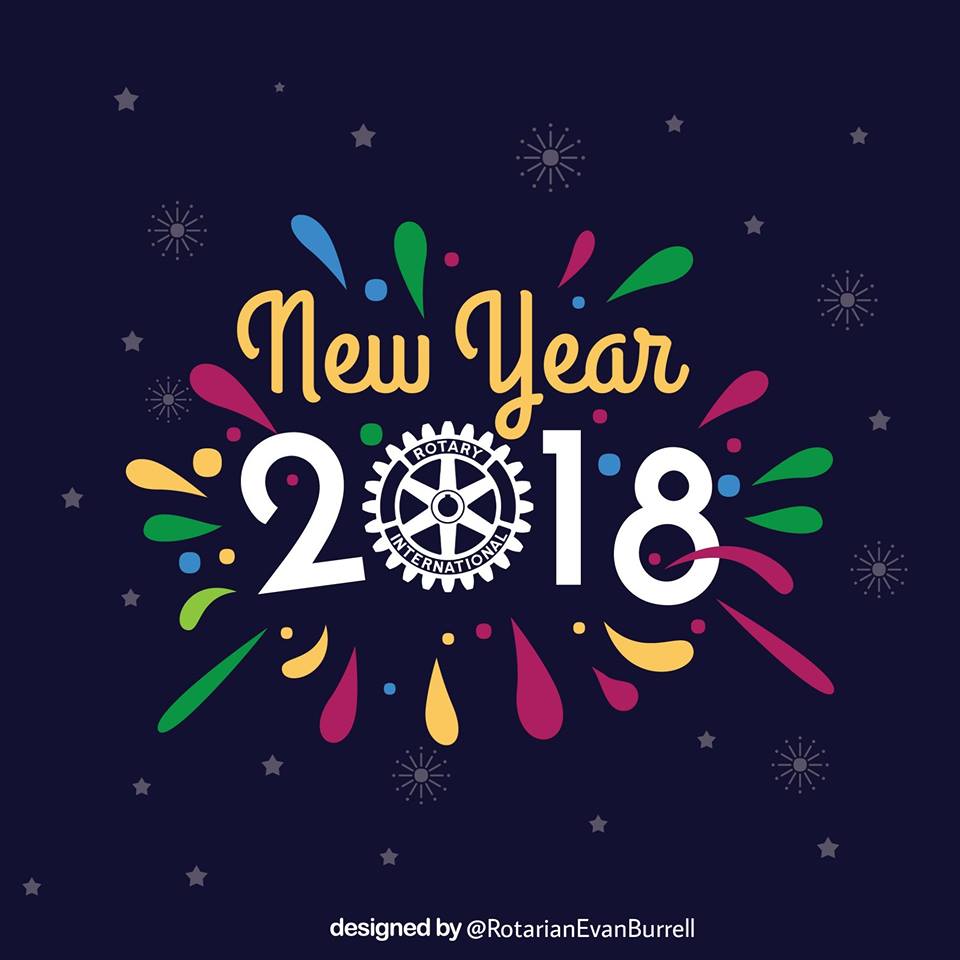
Remember you still have time to register for the International Convention to be held 23rd to 27th June 2018 in Toronto, Canada. For further details and booking please open the link below:
http://www.riconvention.org/en/toronto
